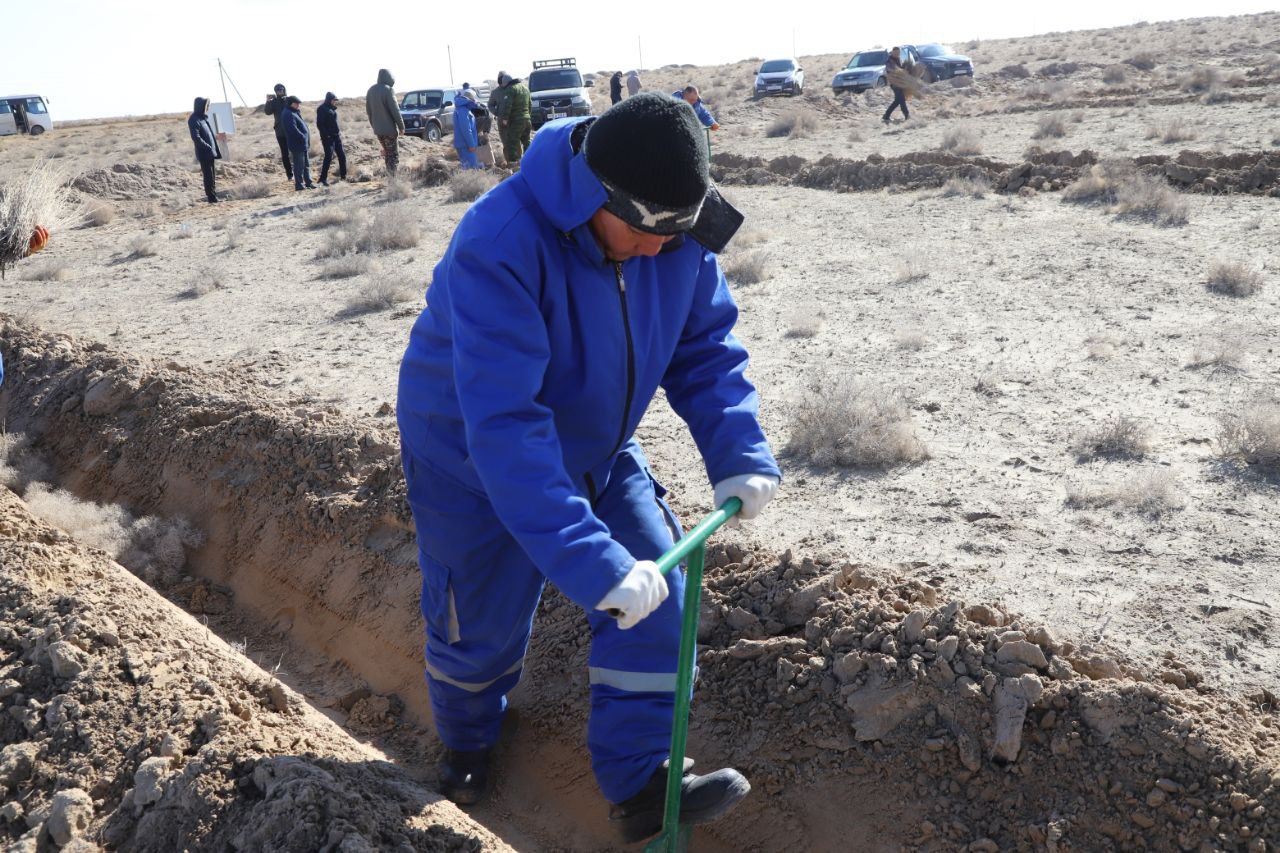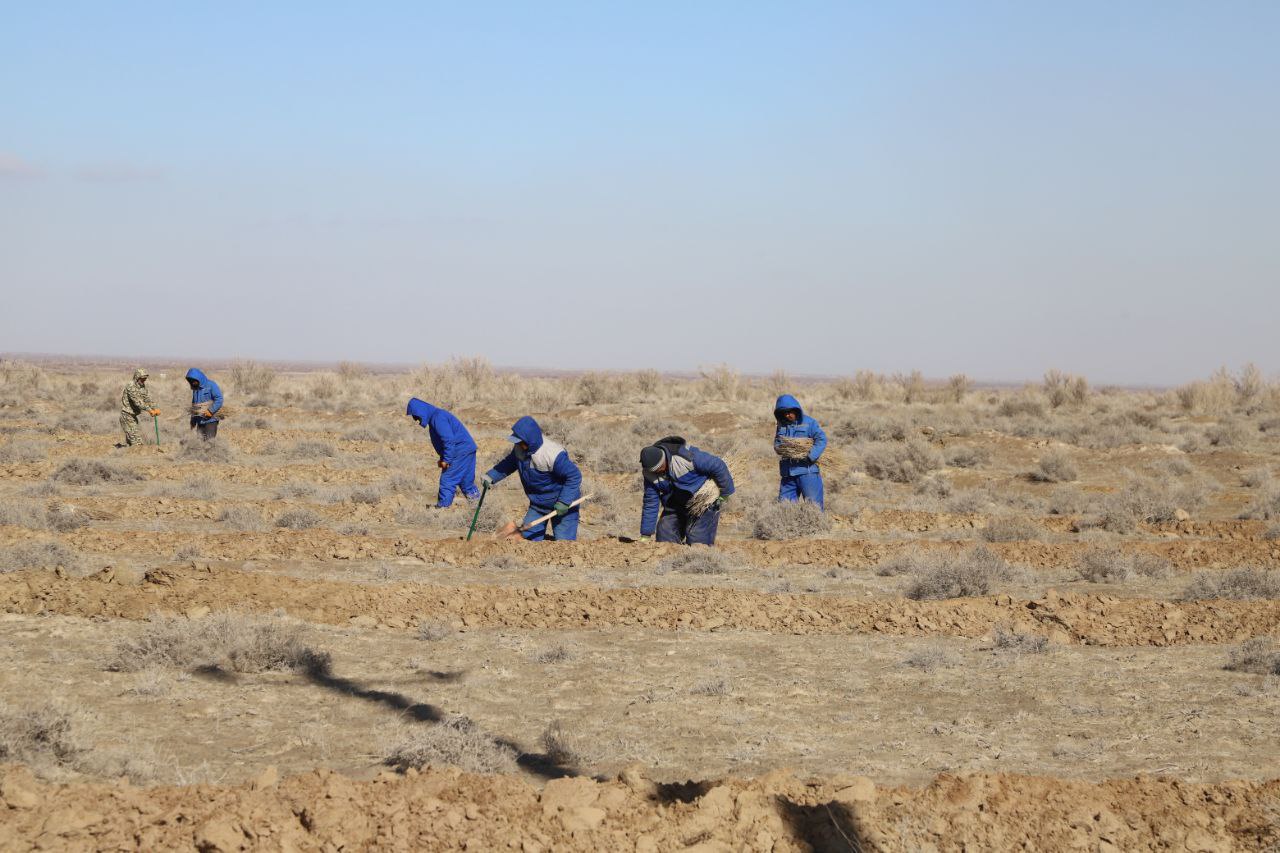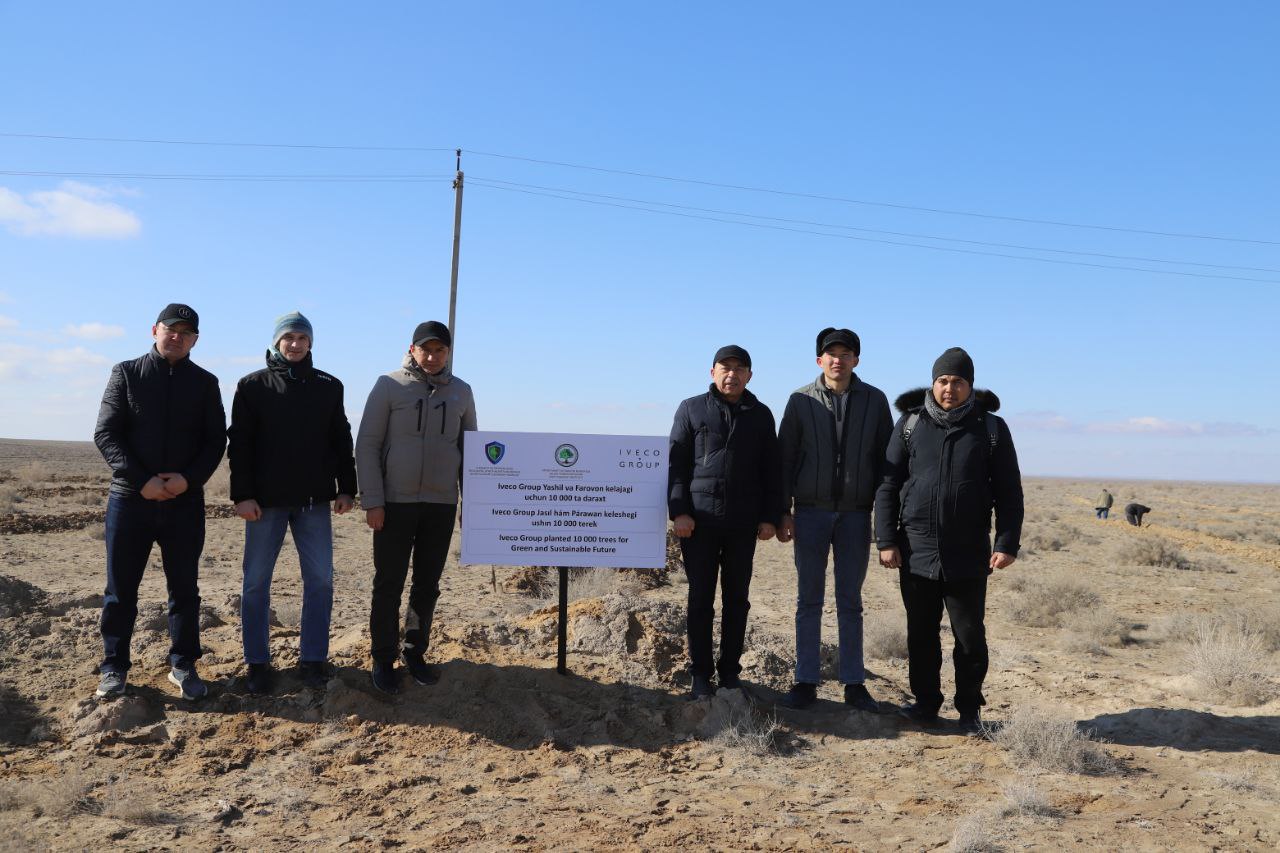
The Ministry of Ecology, Environmental Protection, and Climate Change, the Research Institute of Environment and Environmental Technologies under the Ministry, together with the Iveco Group company, planted about 10 thousand saplings of saxaul on 10 hectares in the Aral Sea region.

The institute's scientists are also conducting scientific research aimed at restoring the ecosystem in this area. The project aims to create pastures in the desert zone, cover them with a green cover, prevent the spread of dust rising from the bottom of the Aral Sea, and apply a scientific approach to reducing land degradation during climate change.
For information, according to the instructions of the head of state, during 2018–2023, 1 million 730 thousand hectares of forest plantations were planted on the bottom of the Aral Sea, which led to the greening of 17 thousand square kilometers. In 2024, it is planned to lay forests on a total area of 150–200 thousand hectares.

To date, 192.63 tons of desert plant seeds have been collected and prepared for planting, including 71.96 tons of saxaul and 120.67 tons of salt pans. Also, seeds and seedlings of desert-resistant plants such as saxaul, Kandym, and Cherkess are planted on an area of 2.7 thousand hectares.











